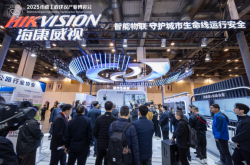After recalling 1.1 million vehicles, is Tesla's most controversial feature about to be banned?
![]() 06/12 2024
06/12 2024
![]() 626
626
As an industry benchmark company, Tesla is often at the forefront of controversy. Its most controversial feature - the one-pedal mode - has sparked numerous public opinions.
Following the recall of over 1.1 million vehicles last year, regulators have once again intervened. Is Tesla's "one-pedal" mode really going to be banned?
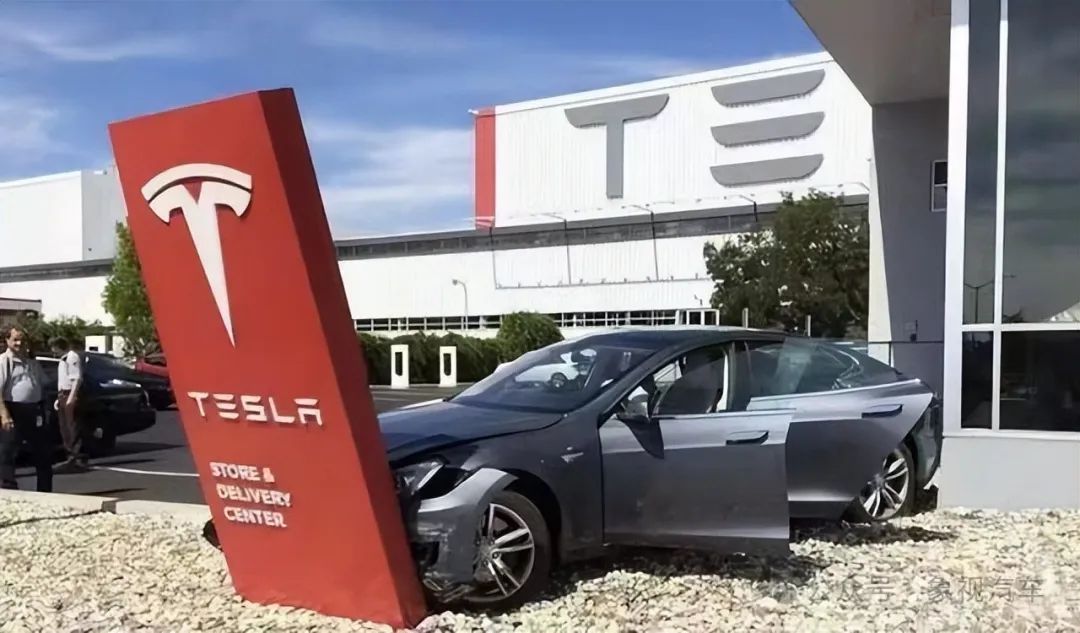
1. Tesla recalls 1.1 million vehicles
Perhaps it's due to being a leader, or perhaps it's the fate of a pioneer, Tesla, as a benchmark company in the new energy industry, is often at the center of significant controversy.
Around 2021, from Henan, Xi'an, Wenzhou, Nanchong to Chaozhou, across the country, Tesla was associated with multiple "brake failure" incidents within two years.
Although Tesla proved through multiple lawsuits that there was no so-called "brake failure," its "one-pedal mode" also began to cause immense controversy.
Some netizens support it, calling it advanced technology representing the future; while others oppose it, believing it poses significant safety hazards.
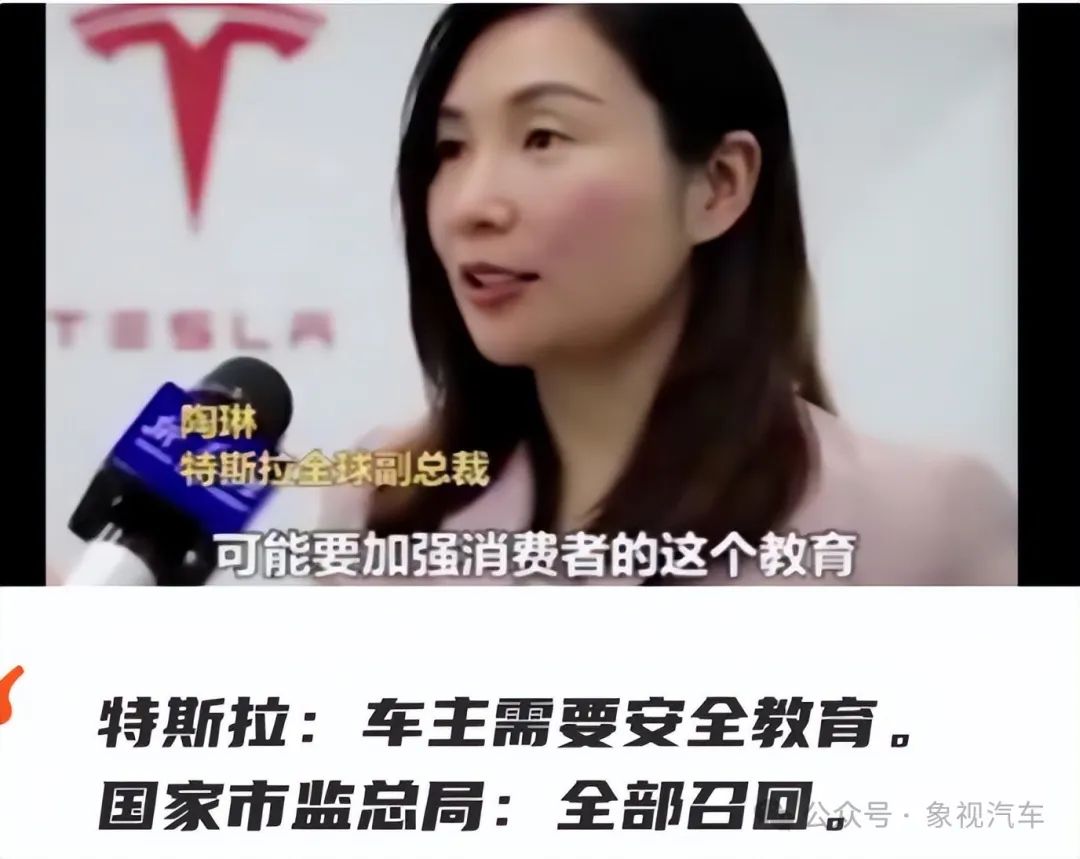
In fact, the "one-pedal mode" is not unique to Tesla, as BMW i3 and Nissan Leaf also have such a feature.
However, with Tesla's Global Vice President Tao Lin's statement that "consumers need to be educated," the one-pedal mode has become tightly associated with Tesla. Amidst the significant controversy, regulators intervened.
In May 2023, under the initiation of a defect investigation by the State Administration for Market Regulation, Tesla recalled over 1.1 million vehicles due to safety hazards associated with the one-pedal mode.
Through the recall, Tesla no longer forces consumers to use the one-pedal mode, leaving the choice to the user.
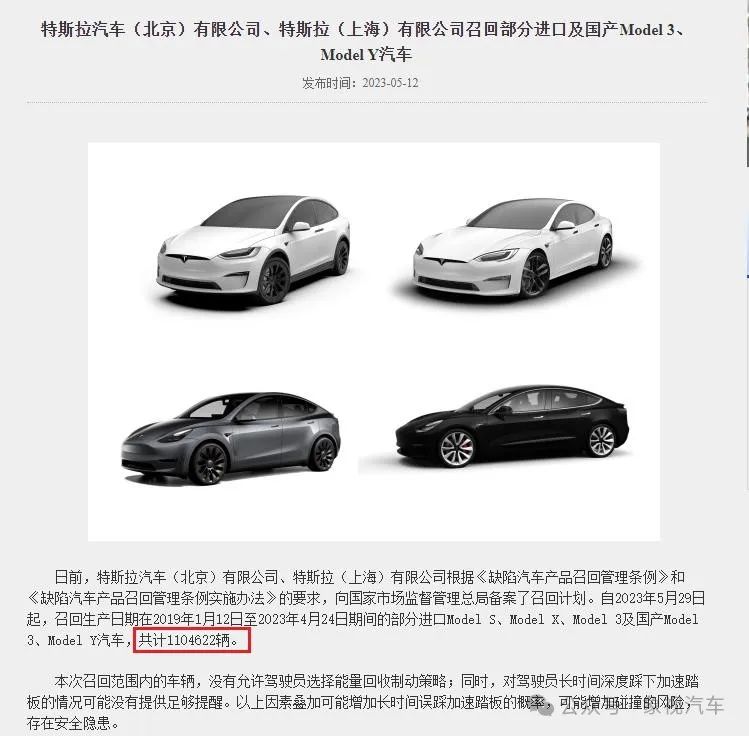
2. Tightened restrictions for the second time!
One year later, regulators have once again intervened, dealing another blow to the one-pedal mode.
This time, it was not the State Administration for Market Regulation, but the Ministry of Industry and Information Technology (MIIT).
On May 27, the MIIT released a draft of five mandatory national standards for the technical requirements and test methods of passenger car braking systems, seeking public opinions from all sectors of society.
Among them, "the braking effect achieved by releasing the accelerator pedal in the forward gear cannot decelerate the vehicle to a stop" has become a major concern, sparking numerous discussions.
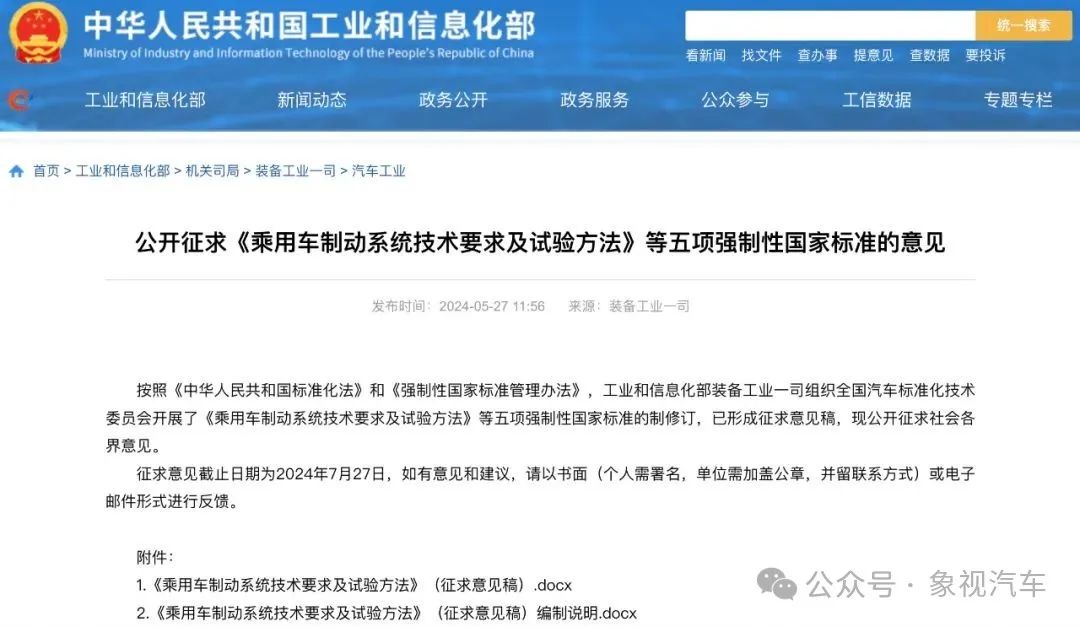
The news sparked waves of discussion, once again bringing the "one-pedal mode" of new energy vehicles back into the spotlight of public opinion.
Some industry insiders interpret the "Method" as indicating that once the newly revised national standard is passed, the "one-pedal mode" will be completely banned, having a significant impact on automakers like Tesla.
Whether this change in the new regulation is directly targeting Tesla, putting a second tight restriction on it, is currently undecided.
In response, Tesla publicly stated on its official website that the relevant standards of the MIIT "have not yet been officially released and implemented, and do not affect Tesla's existing products and functions."
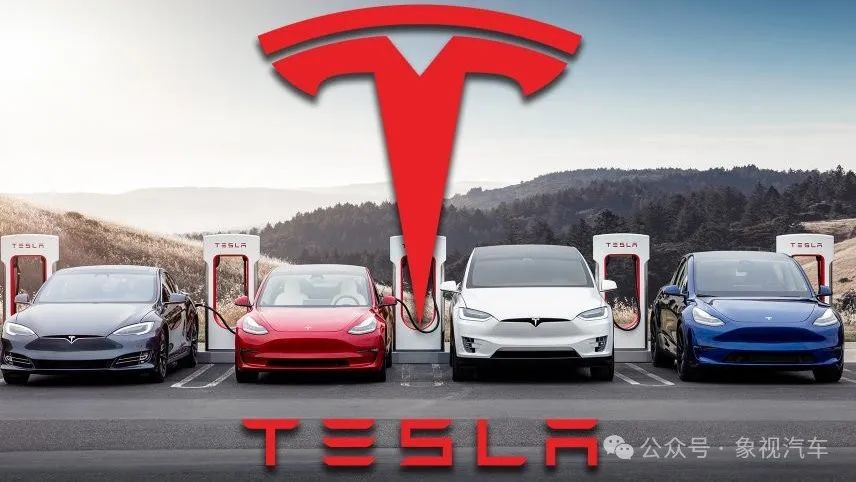
3. Is the one-pedal mode going to be banned?
In fact, the "one-pedal mode" is not as some people think, where the entire vehicle has only one pedal, but rather a mode that controls the acceleration and deceleration of the vehicle by pressing and lifting the accelerator pedal.
In the past, drivers controlled the vehicle through two pedals: the accelerator and the brake. However, under the "one-pedal mode," drivers may use the brake pedal less frequently, relying primarily on the accelerator pedal to control the vehicle.
This could potentially lead to situations where, in an emergency requiring braking, the driver accidentally presses the accelerator instead of the brake, resulting in tragedy.
The one-pedal mode may give drivers the illusion that they can stop the vehicle using only the accelerator.
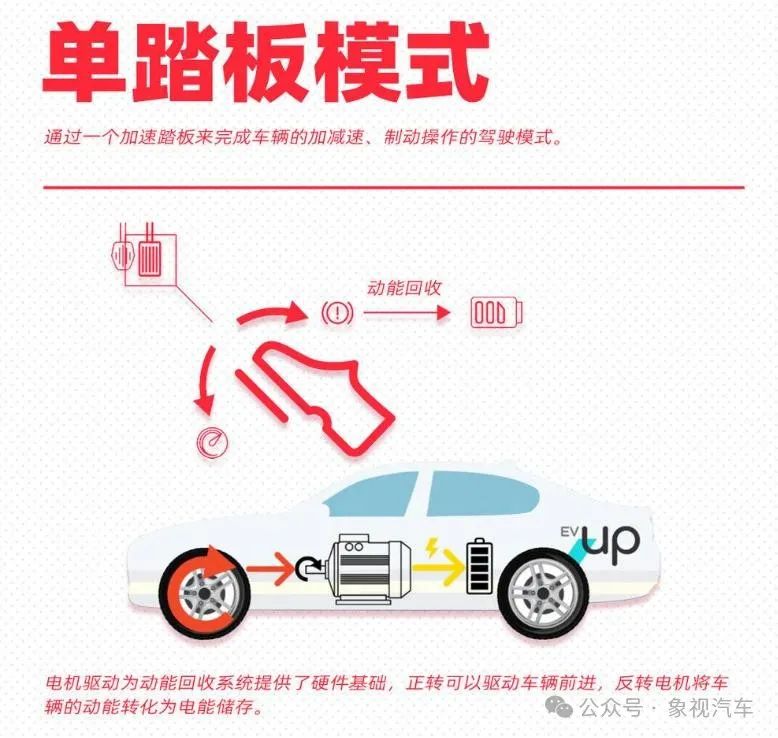
To reduce safety hazards, we should not give drivers such an illusion. The new regulations proposed by the MIIT precisely address this point.
The draft can be simply understood as the regulatory level "proposing to prohibit cars from completely stopping with a single pedal."
Taking Tesla as an example, its "one-pedal mode" has three options:
"Creep" means that when the accelerator pedal is released, the vehicle decelerates but does not stop; "Roll" means the vehicle continues to move forward at a very slow speed; and "Hold" means the vehicle will decelerate to a stop.
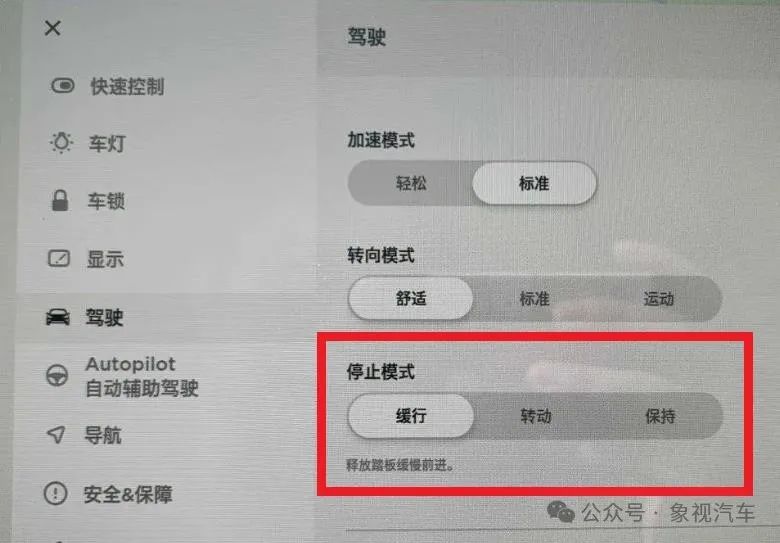
Obviously, the new regulations of the MIIT do not completely ban the one-pedal mode, as modes such as kinetic energy recovery can still be used;
What is proposed to be banned is modes similar to Tesla's "Hold," that is, prohibiting the complete stopping of the vehicle through the one-pedal mode to prevent giving drivers the illusion.
It is normal for new things to be controversial during their development, and technological advancements often result from negotiations. However, human life is paramount, and all designs and functions of a car should prioritize safety, not take life lightly.

